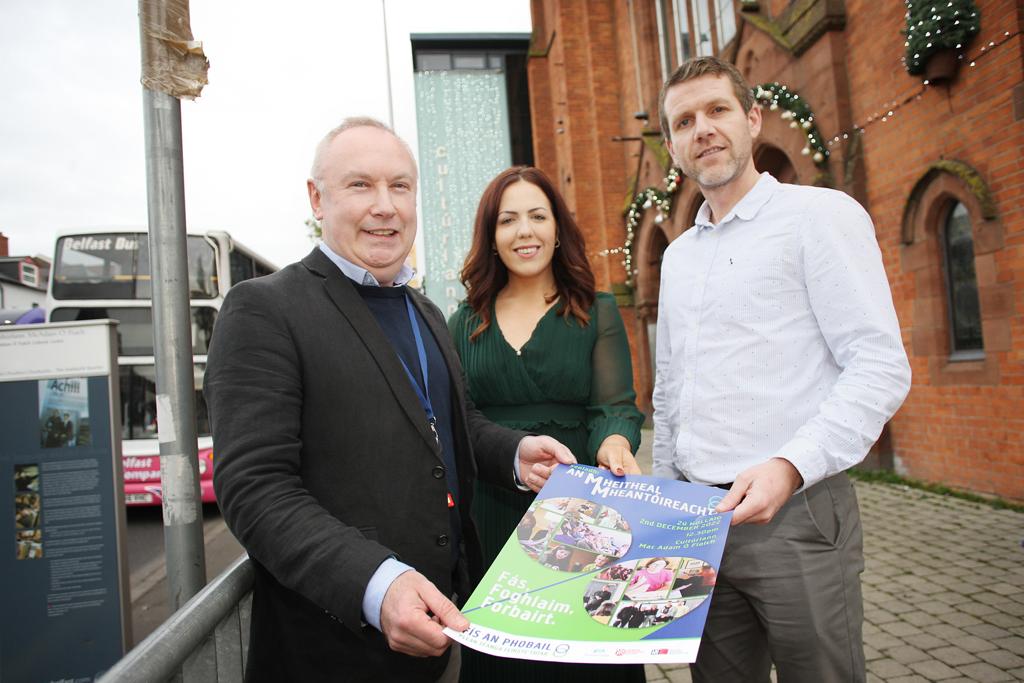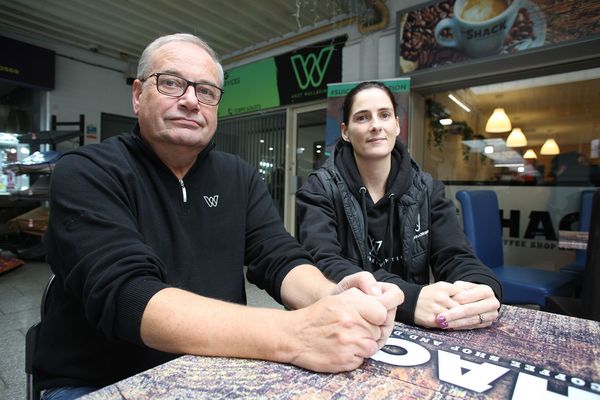A NEW mentoring scheme has been launched in Cultúrlann McAdam Ó Fiaich as part of the Fleadh Feirste festival.
An Mheitheal Mheantóireachta is aimed at those working or seeking work in the burgeoning Irish language community sector.
The mentoring scheme will begin as a pilot next year and will deliver both practical and theoretical units. The scheme will be aimed at those currently employed in the Irish language sector or those seeking work there in the near future.
The project is part of the recently launched ‘Fís an Phobail,’ which is a seven-year language plan for West Belfast to build on the internationally recognised revivalist efforts in the area. The project is supported by Economic and Social Research Council (ESRC)’s Impact Acceleration Account at Queen’s University, Belfast.
In 2018, Foras na Gaeilge awarded specific status to ‘Irish Language Network Areas’ and West Belfast was one of only five areas chosen across Ireland. It is historic because for the first time ever, areas outside of the Gaeltacht regions have been awarded official status as areas of specific linguistic importance.
"Ná hAbair é - Déan é"
— Fís an Phobail (@FisanPhobail) December 4, 2022
Le chéile, tá #fís againn. Le chéile, tá #pobal againn. Le chéile, tá #plean againn.
There’s a vibrant Irish language community in West Belfast atá ag dul ó neart go neart and there's much more to come.
Follow @fisanphobail#Gaeilge le Chéile pic.twitter.com/8EO40IgKOg
Therefore, funding was made available to develop a language plan for the area. In September 2022, a language planning coordinator was appointed to oversee implementation of that plan over the next seven years. West Belfast Youth and Community Organisation Glór na Móna are the lead body on the West Belfast Language planning network.
The overall aim of Fís an Phobail is to support the development of a critical mass of speakers to foster and strengthen a sustainable language community in the years to come. The official recognition for the West Belfast Language network provides national status for the work and the additional resources that accompany the project.
Welcoming the scheme Ciarán Mac Giolla Bhéin, Language Planning Coordinator with Fís an Phobail, said: “West Belfast is recognised across Ireland and indeed internationally for the strength of the community-based revival. Indeed, the first steps of the language revival across the north were taken here over 50 years ago with the establishment of the Shaws Road Gaeltacht and the formation of the first Irish medium primary school. Fifty years later, we have a thriving education sector and a burgeoning community sector delivering a broad range of transformative community development and regeneration projects to our growing community of speakers.
Slua iontach i láthair inniu do sheoladh 'An Mheitheal Mheantóireachta' inniu ag @FisanPhobail mar chuid d'Fhleadh Feirste. Tá mé ag súil go mór tógáil ar an tionscadal seo i 2023!
— Fís an Phobail (@FisanPhobail) December 2, 2022
Buíochas mhór le @qub_gaeilge agus @SCI_Belfast as an tacaíocht.
Fás | Forbairt | Foghlaim pic.twitter.com/DZNxi93EQM
“With our recently attained status as a Language Planning network area, we are determined to build on the pioneering work of those giants who went before us and to ensure that our community continues to thrive. Workforce planning, professional development and tailored training methodologies will be a key element of that and we were delighted to launch our exciting new mentoring programme here today. We want to ensure that the expertise, harnessed over 50 years of organic community development, is captured and passed onto the next generation of activists who will shape the future of the Irish language revival.”
Speaking on behalf of Glór na Móna, Dr Órla Nig Oirc, said: “Having recently completed my PhD in Queen's University Belfast on Educational Inequality in the Irish-medium Education Sector, I have endeavoured to use my new role as business development officer in Glór na Móna to foster a research culture in our organisation and to develop existing partnerships with the university. This ESRC scheme was conceived in partnership with Dr Síobhra Aiken from the QUB Irish Department and its aim is to empower young graduates and emerging leaders from socially disadvantaged communities to engage with the burgeoning Irish language movement.
Tús le seoladh an tógra nuálaíoch, An Mheitheal Mheanatóireachta, le @FisanPhobail agus @QUBelfast #FleadhFeirste2022 pic.twitter.com/Et2Largz9n
— An Chultúrlann (@Culturlann) December 2, 2022
"These are the inspiring leaders of tomorrow, many of whom have been central to the recent An Dream Dearg campaign and who will hopefully remain as part of the Irish language community workforce for years to come. We want to ensure that they are equipped with the very best skills and methodologies in training and capacity building, as well as the necessary ideological and theoretical development that can inspire and sustain them in the long term.”
Alice Neeson from the Impact Acceleration Account at Queen’s University, added: “The ESRC Impact Acceleration Account at Queen’s University Belfast are delighted to be associated with this novel and important project. We are determined to foster stronger links with the community sector and the exciting development of an Irish language sector is something we are keen to support. We look forward to working with this project over the coming years and are sure that it will be of enormous benefit to the young Irish-medium workforce, many of whom are Queen’s graduates.
Cruinniú iontach fiúntach do choiste stiúrtha Fís an Phobail inné @Culturlann
— Fís an Phobail (@FisanPhobail) December 1, 2022
Le chéile, tá plean againn
Tuilleadh le teacht… pic.twitter.com/Bku9tfAUCB
“The fact that this project is part of a broader language plan for West Belfast is hugely encouraging and is testament to the huge strides made by language activists over many years.”









